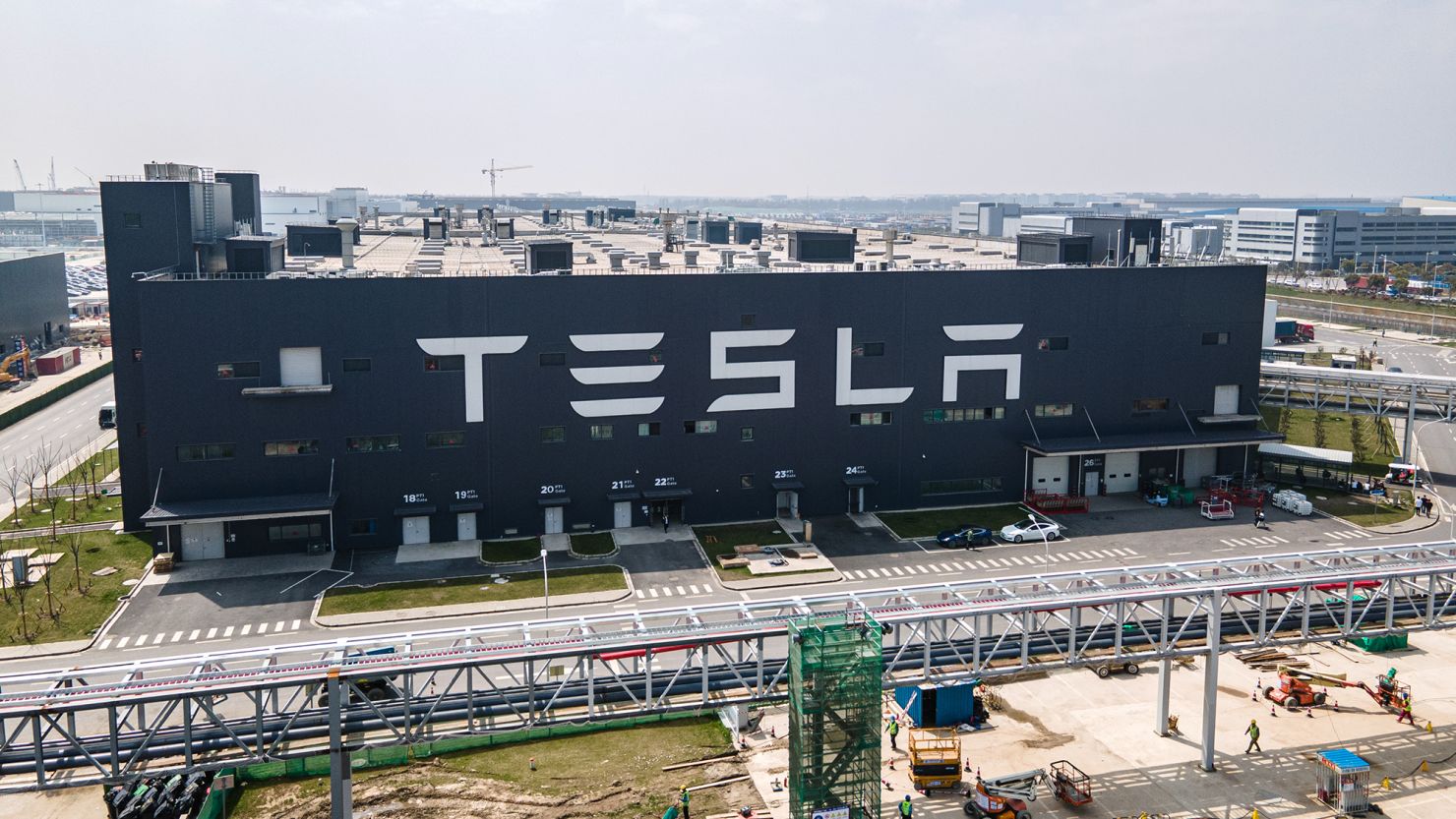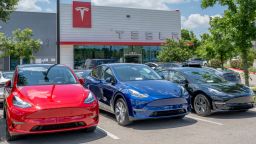Editor’s Note: Sign up for CNN’s Meanwhile in China newsletter which explores what you need to know about the country’s rise and how it impacts the world.
Tesla has announced aggressive price cuts in China and Germany, shortly after reducing prices in the United States, as the world’s largest maker of electric vehicles (EV) faces declining sales and growing competition in major markets.
The latest round of price cuts adds to a series of price cuts that Tesla has made dating back to early last year to try to maintain demand in the face of increased competition from EV offerings by traditional automakers and higher interest rates driving up the cost of car purchases for many buyers. Tesla’s price cuts have squeezed its profit margins and caused its stock to fall about 4% in trading Monday, ahead of its first quarter earnings report due out after the bell Tuesday.
On Sunday, the EV giant slashed the starting prices of four models sold in mainland China, its largest overseas market, by 14,000 yuan ($1,932). The Model Y, the company’s bestselling car in the country, now starts at its lowest -ever price of 249,900 yuan ($34,502).
In Germany, Tesla’s biggest market in Europe, the price of its Model 3 rear-wheel drive was also lowered by 2,000 euros ($2,132) to 40,990 euros ($43,707), according to its official website.
The first cuts were announced on Friday in the US, when Tesla reduced the prices of three of its five models. The prices of the Model Y, Model X and Model S were cut by $2,000 each, while those for the Model 3 and the Cybertruck remained unchanged.
The flurry of cuts comes during a tough time for Tesla. Its stock has plunged more than 40% year-to-date, after it reported a drop in quarterly deliveries for the first time in nearly four years and announced job cuts equivalent to more than 10% of its global staff.
On Saturday, Tesla CEO Elon Musk said he had postponed his planned trip to India, citing “very heavy” obligations at the company. He was due to arrive in the country this week for a visit that was expected to include a meeting with Prime Minister Narendra Modi and confirmation that Tesla will build a factory in the world’s most populous country.
China gets tougher
In China, the largest EV market in the world, Tesla’s price cuts are expected to exacerbate an existing price war in a highly competitive sector.
On Monday, Chinese EV maker Li Auto (LI), led by billionaire entrepreneur Li Xiang, responded by announcing it was cutting the prices of all four of its models with immediate effect. Its Li Mega, which it says is the world’s largest passenger EV, now sells for 30,000 yuan ($4,142) cheaper.
The American company was already facing stiff competition there.
Tesla was briefly dethroned by China’s BYD as the world’s bestselling EV brand in the fourth quarter of last year. Compared with Tesla, BYD’s cars are more affordable.
Its entry-level model sells in China for the equivalent of just below $10,000. In contrast, Tesla’s Model 3, its cheapest model, currently costs three times more at 231,900 yuan ($32,017) in China following Sunday’s price cut.
China’s EV price war started in October 2022, when Tesla cut prices to boost sales as consumers slashed spending in a slowing economy. Almost all major manufacturers, including makers of gasoline vehicles, followed suit, impacting the entire auto industry’s profit margins.
The competition continues unabated in 2024, with more than 30 major car makers announcing further price cuts.
On Friday, XPeng, the Guangzhou-based EV maker, said it would offer 500 million yuan ($69 million) worth of subsidies for buyers who snap up four of its models.
In March, BYD lowered the starting price of its most affordable EV, the Seagull hatchback, by 5% to 69,800 yuan ($9,670). Later that month, Xiaomi, the smartphone manufacturer, joined the EV race by launching its SU7 sedan to take on Tesla.
CNN’s Chris Isidore contributed to this report.








